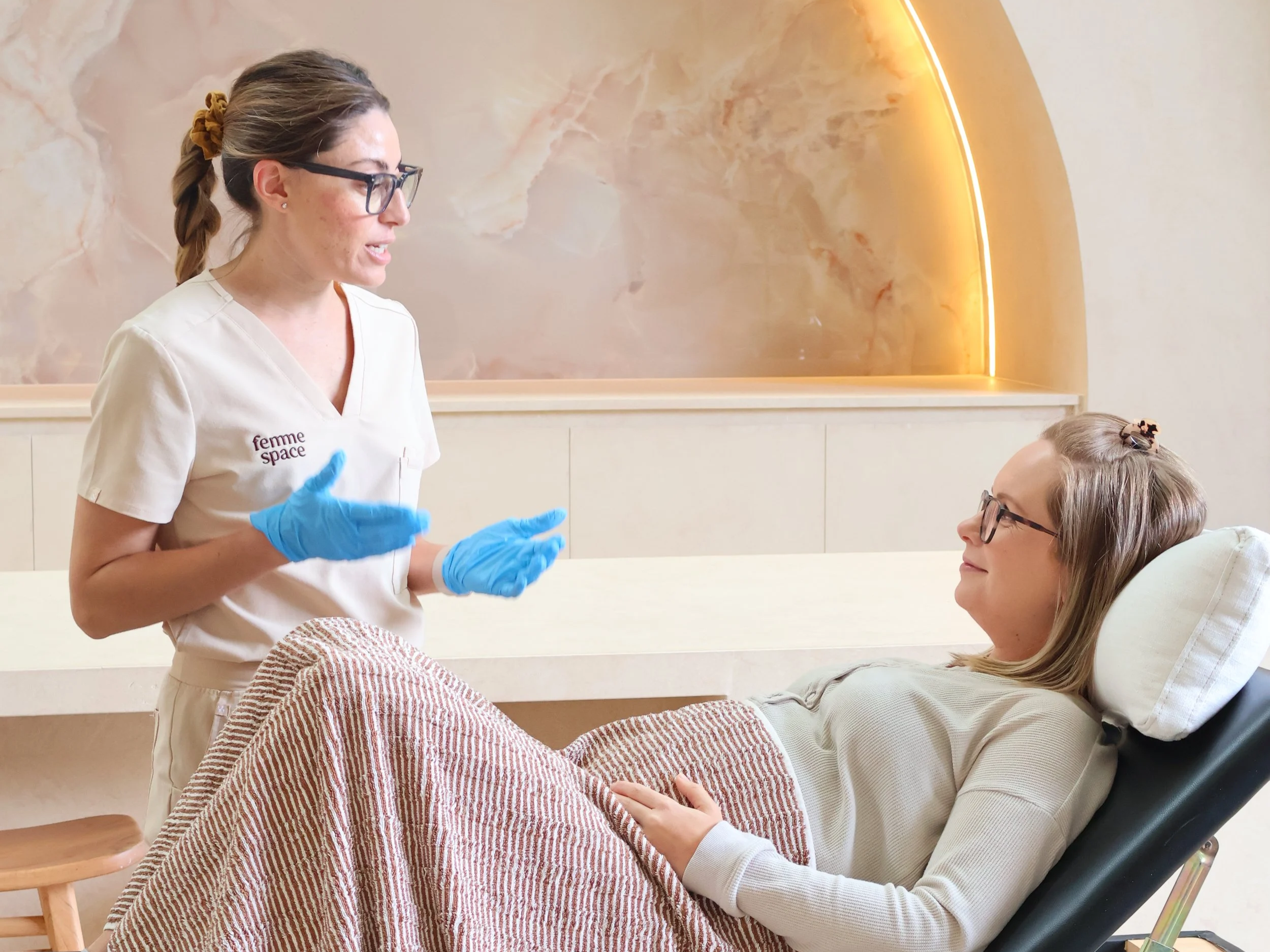Services
Prenatal Physio
A Women’s Health Physio plays a big role in your pregnancy journey. During early pregnancy, our job is to assess your pelvic floor (including bladder, bowel and sexual function) and to create a program specific to you to help improve the function of your pelvic floor. We also identify any risk factors you may have for urinary incontinence, faecal incontinence, prolapse, and obstetric anal sphincter injury and help you mitigate those throughout your pregnancy. We can also assist with birth choices if requested. Towards the end of your pregnancy, our role is to help prepare you for your birth. The most meaningful way we can do this is by teaching you or your partner how to perform perineal massage – we can demonstrate this on you so you know exactly how it should feel. We also teach you how to ‘push’ your baby out, specifically looking at what your pelvic floor and perineum are doing, and guiding you to improve your technique. It’s never too late in your pregnancy to come in for an appointment, one physio session is better than none. If you are still in your first or second trimester, the Pregnancy and Birth Preparation Packages are a great option to cover everything you need.
Other things we can assist with during pregnancy include advice around exercise (what to avoid, what to watch out for and how to modify) as well as any pregnancy-related aches or pains – back pain, hip pain, pelvic girdle pain, abdominal or rib pain.
Postpartum Physio
It is recommended to have a postpartum check with a Women’s Health Physiotherapist at the 6 week postpartum mark. During this check we again assess your pelvic floor function (including bladder, bowel and sexual function) and set you up with a program specific to you to improve your pelvic floor function. We will also assess for any abdominal separation and set you up with an abdominal rehab program and assist with returning to general exercise.
We can also manage any aches and pains that may be associated with caring for your new baby or the hormonal changes your body is going through during this period.
Prolapse
Prolapse can be a daunting issue to face and whilst it is not normal it is so common! 1 in 3 women will experience some level of prolapse in their lives. There are many ways in which a Women’s Health Physiotherapist can help to improve symptoms of prolapse including a variety of changes to lifestyle and exercise as well as pessary fitting.
Urinary Incontinence/ Dysfunction
Women’s health physiotherapists can assist in management of stress urinary incontinence (leaking with a cough, sneeze, laugh or exercise), urge urinary incontinence (leaking on your way to the toilet), overactive bladder (OAB) and anything in between. We can help with conservative management with any bladder dysfunction you might be experiencing.
Pelvic Pain
From endometriosis to adenomyosis to PCOS and pain with sex (dyspareunia) or tampon insertion – we see it all. Women’s Health Physiotherapists can assist with managing the pain and symptoms associated with all of the above. We can assist with associated conditions like vaginismus and vulvodynia.
Perimenopause and Menopause
Perimenopause and menopause bring an array of symptoms which Women’s Health Physiotherapists can assist with like pelvic floor weakness and dysfunction, vaginal/vulval sensitivity and dryness as well as decreased sensation during intercourse.


